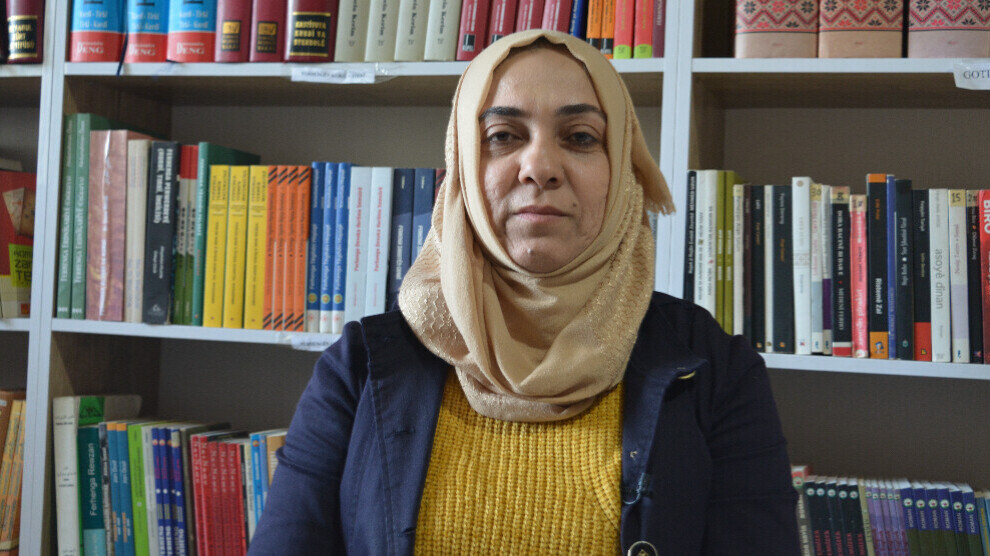‘Language is the culture, history and identity of a nation’
“Language is the culture, history and identity of a nation,”Qamishlo Kurdish Language Institution member Delal Heşmî said, calling on the Kurdish people to preserve their language.

VIYAN AMED
Qamishlo- World Mother Language Day is annually observed on February 21 to promote cultural diversity and multilingualism. However, the Kurdish language still faces assimilation policies and bans. The Kurdish people cannot speak their language freely in their homeland for years.
After the revolution in Rojava, the Kurdish language became the official language in the region and Kurdish children can receive education in their own language. Since the establishment of many language institutions and universities in Rojava, Kurdish children have had the opportunity to learn about their own language, culture and history. Armenian, Assyrian and Arab people in North and East Syria also receive education in their own language. Qamishlo Kurdish Language Institution member Delal Heşmî spoke to NuJINHA about the World Mother Language Day.
‘Human beings have the right to speak, read and write in their mother language’
Celebrating the World Mother Language Day of all people living in North and East Syria, Delal Heşîm said, “I congratulate all people who preserve their mother language and keep it alive today. In the world, there are many nations and each of them has a language and culture. Human beings have the right to speak, read and write in their mother language. Language is the culture, history and identity of a nation. People, who have no language and culture, are in danger of extinction.”
‘Sovereigns deliberately ban the Kurdish language’
Noting that the Kurdish language faces bans in four parts of Kurdistan, Delal Heşîm said, “The Kurdish language has been subjected to attacks for years. Despite these attacks, the Kurdish people have managed to preserve their language.” Underlining that the sovereigns divided Kurdistan in four parts, she said, “Sovereigns deliberately ban the Kurdish language. Due to bans on the Kurdish language, Kurdish children are forced to learn Arabic, Turkish and Persian languages. All kinds of methods have been used against us in order to destroy our culture and language. Our mothers and grandmothers have preserved our languages despite all kinds of methods.”
‘The Rojava Revolution paved the way for the language revolution’
“Due to the racist policies of the sovereign states in four parts of Kurdistan, the Kurdish people were forced to teach their children Arabic, Turkish and Persian. However, this situation changed after the Rojava Revolution. The Rojava Revolution paved the way for the language revolution. After the revolution, our people began to learn their own culture, language and history. Now, there are many language institutions and universities in Rojava, for instance the Rojava University. In addition, many Kurdish books have been published. The language revolution made our mothers and grandmothers' dreams come true. Today, Kurdish children learn their mother language, their culture and their history.”
‘Our main aim is to promote our language’
Calling on all Kurdish people to preserve their mother language, Delal Heşîm said, “We have to preserve our language against all racist policies. If we do not protect our gains today, no one will protect them. The Kurdish people have been oppressed for centuries. But we have to preserve our language and culture today to pass them down to the next generations. Our main aim is to promote our language all around the world. I call on all Kurdish people, particularly Kurdish women, to preserve their language.”
